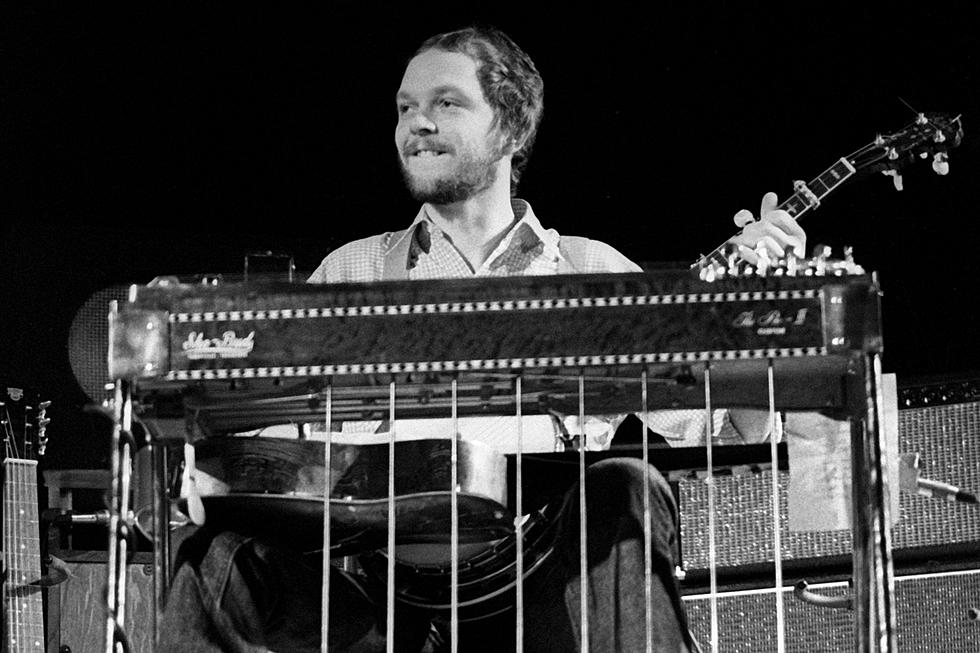
How Poco’s Self-Titled Second Album Pulled Them Apart
Richie Furay and pals picked up the pieces of the shattered Buffalo Springfield in 1969 to form Poco. The new group – featuring Springfield producer Jim Messina (now on guitar and vocals) and multi-talented sideman Rusty Young, along with drummer George Grantham and bass player Randy Meisner – followed Buffalo Springfield's more rustic moments, fusing together rock, pop and country music.
The group released its debut, appropriately titled Pickin' Up the Pieces, in that spring. The album leaned heavily on Furay's songwriting talents (he wrote all the tracks). Poco's self-titled follow-up, released about a year later on May 6, 1970, would be a different affair – not so much in terms of musical perspective, but more in the realm of creative load-bearing.
Furay's vice-like grip on the band had already resulted in one departure: Meisner left the band when he was boxed out of the mixing sessions for Poco's debut. The bassist went on to join Ricky Nelson's band, and later co-founded another country-rock group, the Eagles. For Poco's sophomore LP, Meisner was replaced by Timothy B. Schmit (who, interestingly enough, would also join the Eagles, again stepping in for a departed Meisner).
On his first outing with Poco, Schmit co-wrote a song ("Keep on Believin'") with Furay, who shared credit with all of the members for the extended album-closer "Nobody's Fool / El Tonto de Nadie, Regresa." He also made way for Messina to contribute a song of his own – a bouncy slice of twangy pop called "You Better Think Twice."
With its catchy melody and winning harmonies, "You Better Think Twice" is one of the great shoulda-been hits of the '70s. Although it became one of Poco's signature songs, it's a wonder that it didn't garner more airplay in an era that included blockbuster singles by the like-minded America and Crosby, Stills, Nash & Young.
Listen to Poco Perform 'You Better Think Twice'
The commercial success of that last supergroup was a major problem for Furay. The Poco frontman had to watch his band's second album stall at No. 58 on the Billboard chart while his former Buffalo Springfield bandmates topped the charts with Deja Vu and scored multiple pop hits.
"Richie wanted commercial success in both bands," Messina said in the late '90s. "With Poco, he wanted to be as big as Crosby, Stills & Nash. I’m not saying that’s right or wrong, but there were, and are, no guarantees in the music business. To think that way was a sabotage of every aspect of what we were trying to do."
Though Poco would fare slightly better on their next album – the live Deliverin', released in January 1971, squeaked into the Top 40 and gave the band a modest single in "C'mon" – Furay's expectations continued to place a strain on the band, at least according to Messina. "I became frustrated because Richie was frustrated," Messina said. "This was the one guy in the band who I loved and I still do love, who I looked up to and admired, and I just could not understand his behavior. That behavior scared me, and I had to get out of the way."
Messina quit the band a few months after the release of Poco, and later found success with Kenny Loggins in Loggins & Messina.
Regardless of band turmoil and financial success, the album remains a highlight of the country-rock subgenre – specifically for how Poco's songwriting, Young's otherworldly steel guitar (played through a Leslie speaker) and the manner in which the band merged the jam-heavy, late-'60s rock aesthetic with the buttoned-down country feel
Poco's sound certainly endeared the band to future country fans. The group's self-titled second album is on display in a country-rock exhibit in the Country Music Hall of Fame in Nashville, along with the jacket that Rusty Young wore for the back cover photo.
Top 100 Classic Rock Artists
More From Ultimate Classic Rock









